COALITION GOVERNMENTS
summary
A summary will be added in due time.
Research in this area has been (partly) funded by:

related publications
2025
-
 Understanding Pledge-Making in Coalition Agreements: Evidence from the COALITIONPOLICY DatasetFabio Ellger and Heike KlüverIn Handbook on Coalition Politics, 2025
Understanding Pledge-Making in Coalition Agreements: Evidence from the COALITIONPOLICY DatasetFabio Ellger and Heike KlüverIn Handbook on Coalition Politics, 2025@incollection{ellger_understanding_2025, title = {Understanding Pledge-Making in Coalition Agreements: {Evidence} from the {COALITIONPOLICY} Dataset}, author = {Ellger, Fabio and Klüver, Heike}, year = {2025}, address = {S.l.}, series = {Elgar {Handbooks} in {Political} {Science}}, isbn = {978-1-80392-955-2}, url = {https://www.elgaronline.com/edcollchap/book/9781803929569/chapter19.xml}, language = {en}, booktitle = {Handbook on {Coalition} {Politics}}, publisher = {Edward Elgar Publishing}, editor = {Bräuninger, Thomas and Debus, Marc}, pages = {332--352}, data = {https://dataverse.harvard.edu/dataset.xhtml?persistentId=doi:10.7910/DVN/DCZXXD}, } -
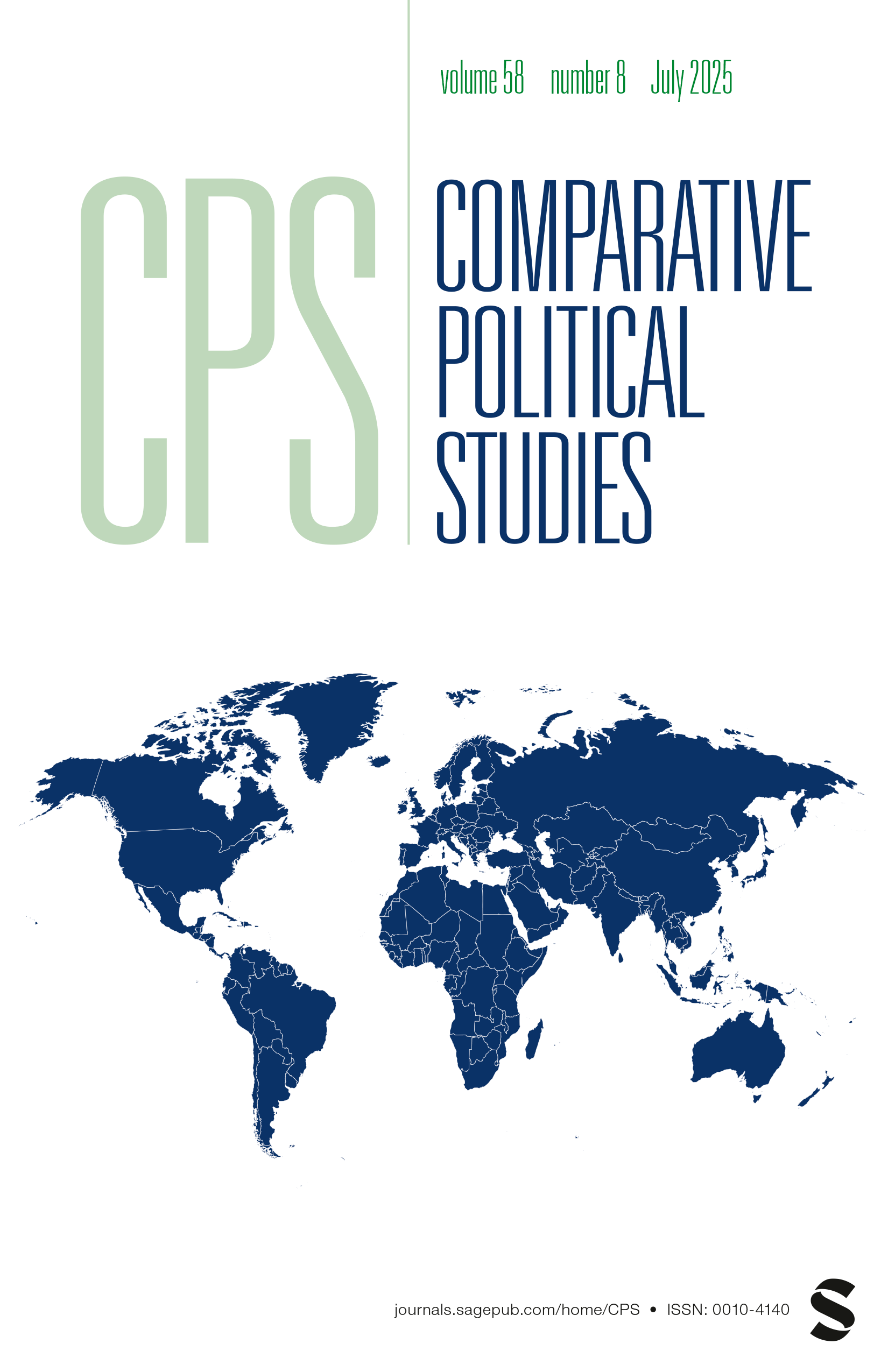 Hitting the Sweet Spot? The Electoral Consequences of Supporting Minority GovernmentsMaria Thürk and Heike KlüverComparative Political Studies, Jul 2025
Hitting the Sweet Spot? The Electoral Consequences of Supporting Minority GovernmentsMaria Thürk and Heike KlüverComparative Political Studies, Jul 2025Does supporting a minority cabinet harm a party’s electoral prospects? While minority governments have become more common in recent years, the electoral implications for parties supporting such cabinets remain unclear. Previous research suggests that support parties enjoy a favorable position, exerting policy influence while avoiding electoral losses associated with joining the government. However, we argue that this is only true for support parties without written agreements, as their support is less visible to voters. To test our argument, we compiled a novel dataset on the electoral performance of 563 parties in 304 elections across 31 countries since 1980. We estimate the effect of being a support party on subsequent electoral performance. Our findings indicate that parties which declare support perform better electorally than junior partners, while contract support parties do not. These insights shed light on the relationship between minority governments and electoral competition amidst growing party system fragmentation.
@article{thurk_hitting_2025, title = {Hitting the {Sweet} {Spot}? {The} {Electoral} {Consequences} of {Supporting} {Minority} {Governments}}, shorttitle = {Hitting the {Sweet} {Spot}?}, author = {Thürk, Maria and Klüver, Heike}, year = {2025}, month = jul, journal = {Comparative Political Studies}, volume = {58}, number = {8}, pages = {1670--1698}, doi = {10.1177/00104140241271210}, issn = {0010-4140, 1552-3829}, url = {https://journals.sagepub.com/doi/10.1177/00104140241271210}, urldate = {2025-06-06}, language = {en}, data = {https://dataverse.harvard.edu/dataset.xhtml?persistentId=doi:10.7910/DVN/SHKP32}, }
2024
-
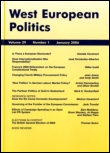 Adopting Restriction: How Coalition Governments Respond to Radical Right PartiesFabio Ellger and Heike KlüverWest European Politics, May 2024
Adopting Restriction: How Coalition Governments Respond to Radical Right PartiesFabio Ellger and Heike KlüverWest European Politics, May 2024Radical right parties (RRPs) have gained representation in parliaments across Europe, but little is known about their impact on government policy. Even though RRPs tend to end up in opposition, they have considerable influence on policy making within coalition governments. One expectation is that coalition governments are tough on immigration to optimise voter support when being exposed to right-wing parties in parliament. Coalition negotiations temporarily reduce accountability and allow cabinets to adjust policy positions without bearing the costs associated with opportunistic behaviour. This argument is tested using novel data on pre-electoral policy positions and post-electoral immigration policies for coalition cabinets in 24 European democracies from 1980 to 2015. The findings reveal that governments shift to more restrictive immigration policies in face of RRPs. This article expands on prior research on the influence of the radical right by demonstrating its direct influence on coalition governments’ joint immigration policy plans.
@article{ellger_adopting_2024, title = {Adopting Restriction: How Coalition Governments Respond to Radical Right Parties}, author = {Ellger, Fabio and Klüver, Heike}, year = {2024}, month = may, journal = {West European Politics}, pages = {1--33}, doi = {10.1080/01402382.2024.2341352}, url = {https://www.tandfonline.com/doi/abs/10.1080/01402382.2024.2341352}, language = {en}, data = {https://dataverse.harvard.edu/dataset.xhtml?persistentId=doi:10.7910/DVN/SW0WEG}, dataset = {coalitionagree}, }
2023
-
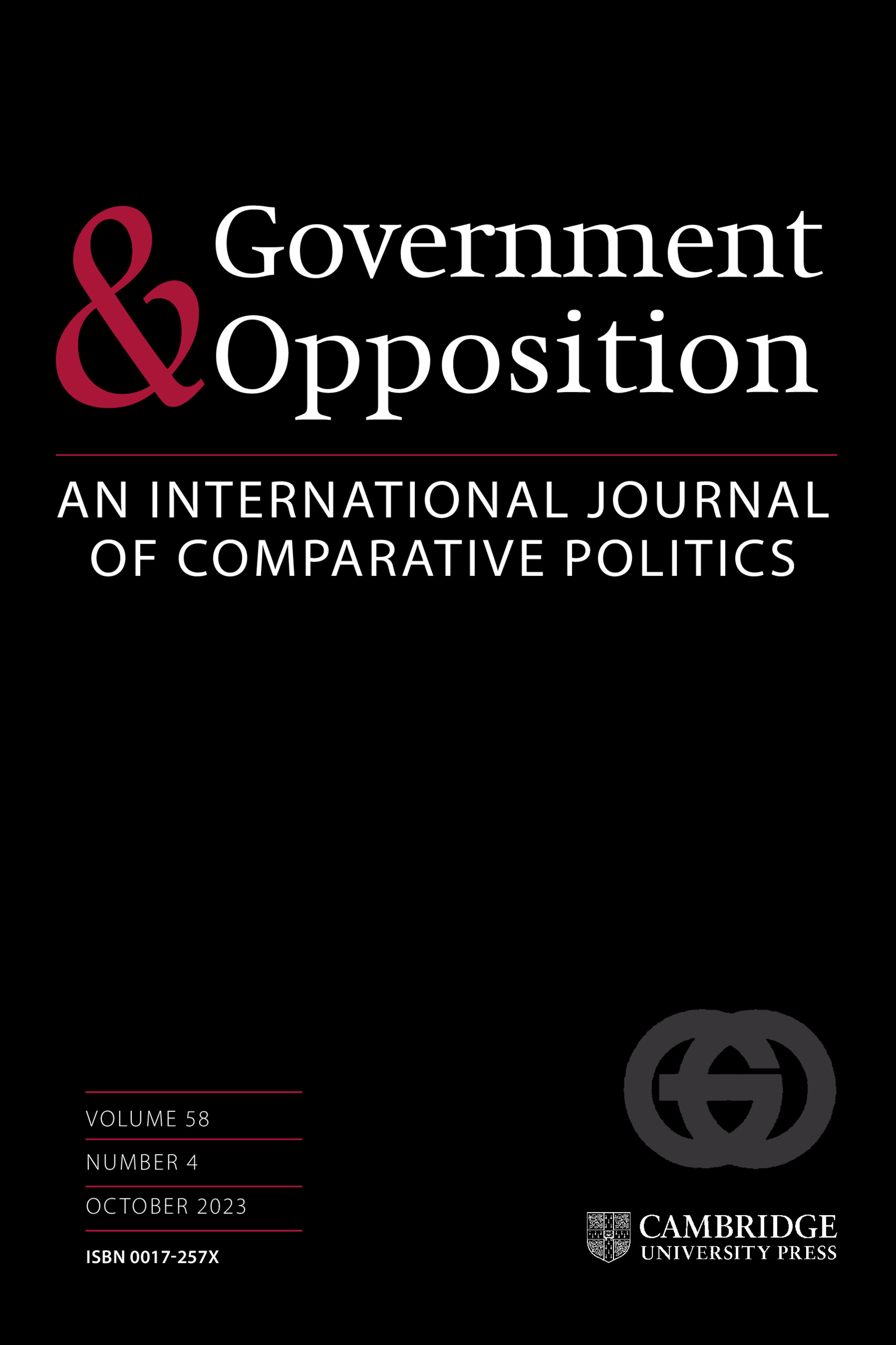 Cabinet Formation and Coalition Governance: The Effect of Portfolio Allocation on Coalition AgreementsSvenja Krauss and Heike KlüverGovernment and Opposition, Oct 2023
Cabinet Formation and Coalition Governance: The Effect of Portfolio Allocation on Coalition AgreementsSvenja Krauss and Heike KlüverGovernment and Opposition, Oct 2023While coalition agreements are significant in structuring government behaviour, their comprehensiveness varies considerably across cabinets. We argue that the average correspondence between parties’ priorities and portfolio allocation is important in explaining the comprehensiveness of coalition agreements because coalition parties that have obtained their preferred portfolios have less incentive to negotiate a detailed coalition agreement. We test our argument by combining newly collected data on coalition agreements drafted by 218 cabinets in 24 Western and Eastern European countries from 1945 to 2014 with data on the distribution of ministerial portfolios. We find that the shorter and less comprehensive the agreements, the higher the correspondence between parties’ priorities and portfolio allocation. Our results have important implications for our understanding of coalition governments and the relationship between government formation and cabinet governance.
@article{krauss_cabinet_2023, title = {Cabinet {Formation} and {Coalition} {Governance}: {The} {Effect} of {Portfolio} {Allocation} on {Coalition} {Agreements}}, shorttitle = {Cabinet {Formation} and {Coalition} {Governance}}, author = {Krauss, Svenja and Klüver, Heike}, year = {2023}, month = oct, journal = {Government and Opposition}, volume = {58}, number = {4}, pages = {862--881}, doi = {10.1017/gov.2021.68}, issn = {0017-257X, 1477-7053}, url = {https://www.cambridge.org/core/product/identifier/S0017257X21000683/type/journal_article}, urldate = {2025-05-30}, copyright = {https://creativecommons.org/licenses/by/4.0/}, language = {en}, } -
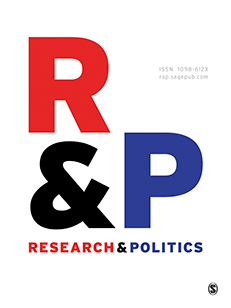 The Electoral Consequences of Policy-Making in Coalition GovernmentsFabio Ellger, Heike Klüver, and Anthea AlbertoResearch & Politics, Jul 2023
The Electoral Consequences of Policy-Making in Coalition GovernmentsFabio Ellger, Heike Klüver, and Anthea AlbertoResearch & Politics, Jul 2023Does policy-making in coalition governments affect cabinet parties’ electoral performance? Previous research shows that about two thirds of all propositions promised in coalition agreements are actually enacted. But does non-compliance with pledges made in the agreement affect subsequent electoral support? Drawing on the literature on performance voting, we expect that non-compliance is punished by voters, but the effect is conditioned by the importance of the issue and by a parties’ seniority status within the coalition. To test our argument, we have compiled the new comparative COALITIONPOLICY dataset on the enactment of more than 7000 policy pledges by 217 cabinet parties in 19 Western and Eastern European countries from 2000 to 2015. Across a broad range of models, we find no effect of pledge fulfillment on subsequent electoral performance. If anything, adherence to policy-promises only increases support for the prime minister party. These results have important implications for our understanding of political representation, coalition governance, and electoral competition in multiparty democracies.
@article{ellger_electoral_2023, title = {The {Electoral} {Consequences} of {Policy}-{Making} in {Coalition} {Governments}}, author = {Ellger, Fabio and Klüver, Heike and Alberto, Anthea}, year = {2023}, month = jul, journal = {Research \& Politics}, volume = {10}, number = {3}, doi = {10.1177/20531680231188266}, issn = {2053-1680, 2053-1680}, url = {https://journals.sagepub.com/doi/10.1177/20531680231188266}, urldate = {2025-05-09}, language = {en}, data = {https://dataverse.harvard.edu/dataset.xhtml?persistentId=doi:10.7910/DVN/DCZXXD}, } -
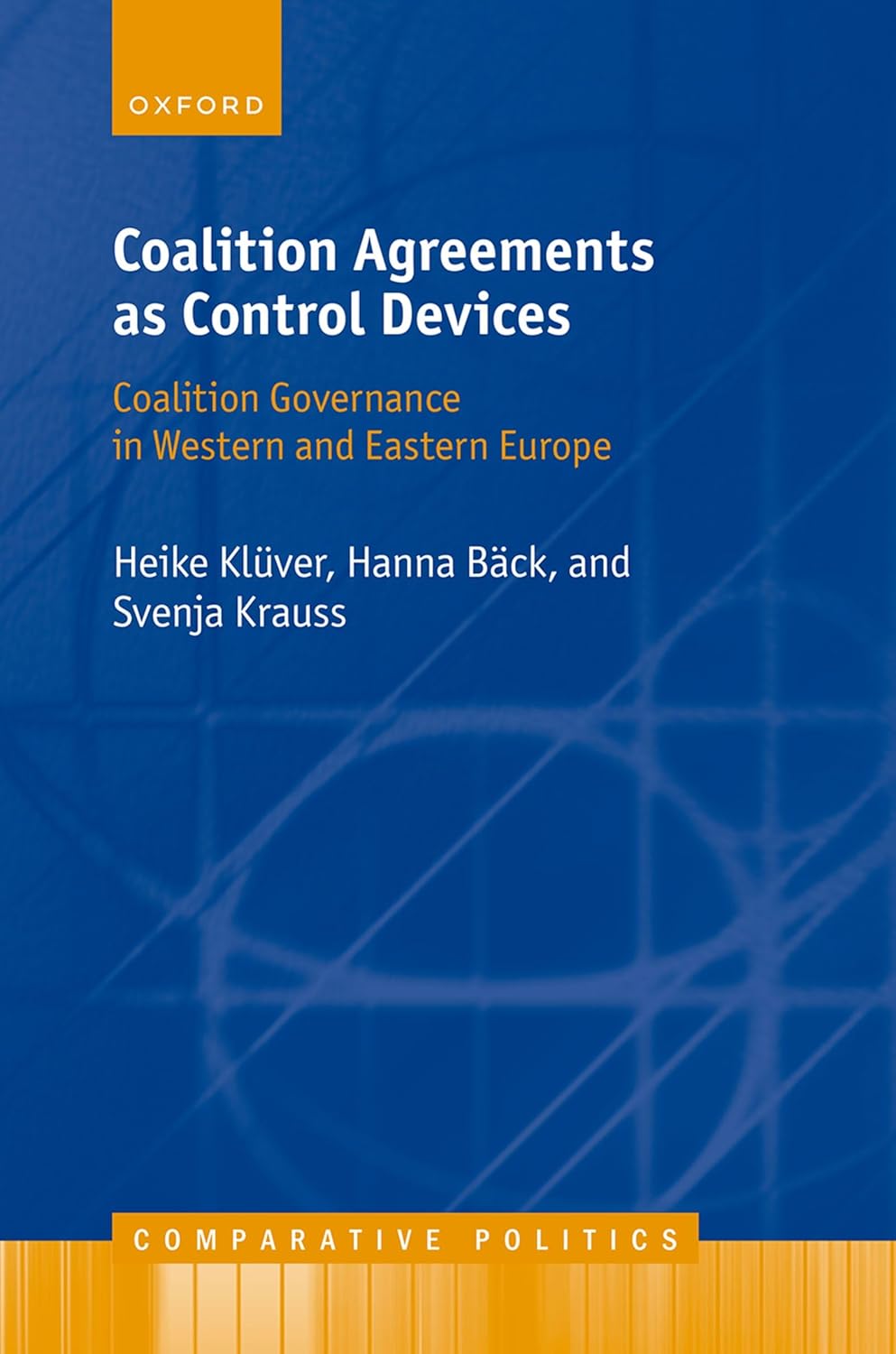 Coalition Agreements as Control Devices: Coalition Governance in Western and Eastern EuropeHeike Klüver, Hanna Bäck, and Svenja KraussJul 2023
Coalition Agreements as Control Devices: Coalition Governance in Western and Eastern EuropeHeike Klüver, Hanna Bäck, and Svenja KraussJul 2023Many coalition cabinets negotiate lengthy coalition contracts outlining the agenda for the time in office. Not only does negotiating these agreements take up time and resources, but compromises have to be made, which may result in cabinet conflicts and electoral costs. This book explores why political parties negotiate such agreements, and argues that coalition agreements are important control devices that allow coalition parties to keep their partners in line. The authors show that their use varies with the preference configuration in cabinet and the allocation of ministerial portfolios.
@book{kluver_coalition_2023, title = {Coalition {Agreements} as {Control} {Devices}: {Coalition} {Governance} in {Western} and {Eastern} {Europe}}, shorttitle = {Coalition {Agreements} as {Control} {Devices}}, author = {Klüver, Heike and Bäck, Hanna and Krauss, Svenja}, year = {2023}, publisher = {Oxford University Press}, address = {Oxford}, series = {Comparative politics}, isbn = {978-0-19-289991-0}, url = {https://academic.oup.com/book/45876}, language = {eng}, data = {https://dataverse.harvard.edu/dataset.xhtml?persistentId=doi:10.7910/DVN/XM5A08}, dataset = {coalitionagree}, }
2020
-
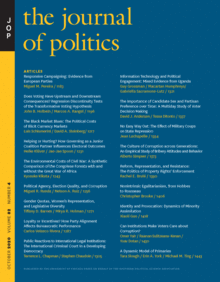 Helping or Hurting? How Governing as a Junior Coalition Partner Influences Electoral OutcomesHeike Klüver and Jae-Jae SpoonThe Journal of Politics, Oct 2020
Helping or Hurting? How Governing as a Junior Coalition Partner Influences Electoral OutcomesHeike Klüver and Jae-Jae SpoonThe Journal of Politics, Oct 2020Does joining a governing coalition as a junior partner influence a party’s subsequent electoral success? We argue that joining a multiparty cabinet as a junior partner considerably hurts a party’s future electoral prospects as junior partners cannot enact much of what they promised before the election and since they cannot sufficiently differentiate themselves from their larger coalition partner. To test our theoretical expectations comparatively and over time, we have compiled a comprehensive data set on the electoral performance of 307 political parties running in 219 elections in twenty-eight European countries from 1972 to 2017. To shed light on the underlying causal mechanisms, we additionally provide empirical evidence from an illustrative case study showing that the inability to deliver on election promises and a large degree of misperception among voters are important drivers of junior coalition parties’ electoral losses. Our findings provide important insights into the relationship between coalition governments and electoral competition.
@article{kluver_helping_2020, title = {Helping or {Hurting}? {How} {Governing} as a {Junior} {Coalition} {Partner} {Influences} {Electoral} {Outcomes}}, shorttitle = {Helping or {Hurting}?}, author = {Klüver, Heike and Spoon, Jae-Jae}, year = {2020}, month = oct, journal = {The Journal of Politics}, volume = {82}, number = {4}, pages = {1231--1242}, doi = {10.1086/708239}, issn = {0022-3816, 1468-2508}, url = {https://www.journals.uchicago.edu/doi/10.1086/708239}, urldate = {2025-05-09}, language = {en}, data = {https://dataverse.harvard.edu/dataset.xhtml?persistentId=doi:10.7910/DVN/KVIJSY}, }
2019
-
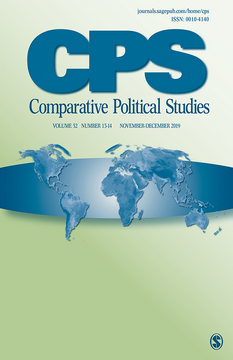 Coalition Agreements, Issue Attention, and Cabinet GovernanceHeike Klüver and Hanna BäckComparative Political Studies, Nov 2019
Coalition Agreements, Issue Attention, and Cabinet GovernanceHeike Klüver and Hanna BäckComparative Political Studies, Nov 2019Why do coalition parties settle some policy issues in great detail, whereas other issues are hardly mentioned in coalition agreements? Coalition agreements are important policy platforms that determine policy making during the legislative term. However, we know remarkably little about their content. We shed light on why issue attention in coalition agreements varies so extensively. We argue that intra-cabinet conflict positively affects issue attention as parties have stronger incentives to negotiate a detailed policy agenda that constrains their coalition partners. However, we expect that this effect is conditioned by preference tangentiality and the salience of an issue among coalition partners. Our theoretical expectations are tested drawing on a new data set based on a comprehensive content analysis of 224 agreements negotiated by 181 parties between 1945 and 2015 in 24 West and East European countries. We find support for our hypotheses and conclude that parties draft agreements to limit “ministerial drift.”
@article{kluver_coalition_2019, title = {Coalition {Agreements}, {Issue} {Attention}, and {Cabinet} {Governance}}, author = {Klüver, Heike and Bäck, Hanna}, year = {2019}, month = nov, journal = {Comparative Political Studies}, volume = {52}, number = {13-14}, pages = {1995--2031}, doi = {10.1177/0010414019830726}, issn = {0010-4140, 1552-3829}, url = {https://journals.sagepub.com/doi/10.1177/0010414019830726}, urldate = {2025-05-15}, language = {en}, data = {https://dataverse.harvard.edu/dataset.xhtml?persistentId=doi:10.7910/DVN/XM5A08}, dataset = {coalitionagree}, }
2018
-
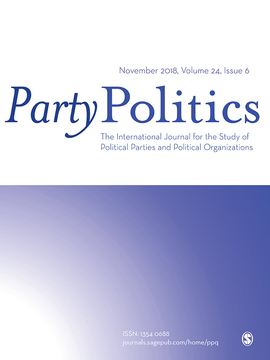 Minority Governments and Legislative Reliability: Evidence from Denmark and SwedenHeike Klüver and Radoslaw ZubekParty Politics, Nov 2018
Minority Governments and Legislative Reliability: Evidence from Denmark and SwedenHeike Klüver and Radoslaw ZubekParty Politics, Nov 2018When are minority cabinets effective? We study the extent to which minority cabinets demonstrate legislative reliability, that is, introduce to parliament the bills they have announced in their legislative agendas. We test hypotheses drawn from two theories of minority government effectiveness: the positional agenda power theory which emphasizes the central location of the minority cabinet in the policy space and the ideological proximity theory which stresses the importance of the ideological closeness of opposition parties to the government. In an analysis of over 1600 bills announced by Danish and Swedish minority cabinets in 19 legislative agendas published between 1998 and 2012, we find more support, overall, for the ideological proximity than for the positional agenda power model.
@article{kluver_minority_2018, title = {Minority {Governments} and {Legislative} {Reliability}: {Evidence} from {Denmark} and {Sweden}}, shorttitle = {Minority {Governments} and {Legislative} {Reliability}}, author = {Klüver, Heike and Zubek, Radoslaw}, year = {2018}, month = nov, journal = {Party Politics}, volume = {24}, number = {6}, pages = {719--730}, doi = {10.1177/1354068817695742}, issn = {1354-0688, 1460-3683}, url = {https://journals.sagepub.com/doi/10.1177/1354068817695742}, urldate = {2025-05-15}, language = {en}, }
2017
-
 Coalition Governments and Party Competition: Political Communication Strategies of Coalition PartiesIñaki Sagarzazu and Heike KlüverPolitical Science Research and Methods, Apr 2017
Coalition Governments and Party Competition: Political Communication Strategies of Coalition PartiesIñaki Sagarzazu and Heike KlüverPolitical Science Research and Methods, Apr 2017Coalition parties have to reconcile two competing logics: they need to demonstrate unity to govern together, but also have to emphasize their own profile to succeed in elections. We argue that the electoral cycle explains whether unity or differentiation prevails. While differentiation dominates at the beginning and the end of the legislative term in close proximity to elections, compromise dominates the middle of the term when coalition governments focus on enacting a common policy agenda. To test our theoretical claims, we draw on an innovative quantitative text analysis of more than 21,000 press releases published by coalition parties from 2000 until 2010.
@article{sagarzazu_coalition_2017, title = {Coalition {Governments} and {Party} {Competition}: {Political} {Communication} {Strategies} of {Coalition} {Parties}}, shorttitle = {Coalition {Governments} and {Party} {Competition}}, author = {Sagarzazu, Iñaki and Klüver, Heike}, year = {2017}, month = apr, journal = {Political Science Research and Methods}, volume = {5}, number = {2}, pages = {333--349}, doi = {10.1017/psrm.2015.56}, issn = {2049-8470, 2049-8489}, url = {https://www.cambridge.org/core/product/identifier/S2049847015000564/type/journal_article}, urldate = {2025-05-15}, copyright = {https://www.cambridge.org/core/terms}, language = {en}, data = {https://dataverse.harvard.edu/dataset.xhtml?persistentId=doi:10.7910/DVN/PZC0DM}, }
2015
-
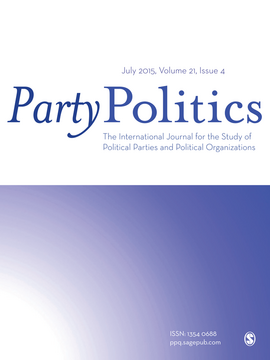 Legislative Pledges and Coalition GovernmentRadoslaw Zubek and Heike KlüverParty Politics, Jul 2015
Legislative Pledges and Coalition GovernmentRadoslaw Zubek and Heike KlüverParty Politics, Jul 2015When do coalitions do what they promise? Previous research has focused on the extent to which parties implement electoral pledges. In this article, we examine how coalition cabinets fulfil post-electoral legislative agendas. Many coalitions announce programmes identifying bills that they plan to introduce to parliament in the months ahead. Even though coalition parties publicly signal commitment to all such proposals, there is variation in the extent to which cabinets meet their own deadlines. We argue that pledge fulfilment is driven by differences in the divisiveness and salience of legislative initiatives. We test our theoretical expectations based on an empirical analysis of over 500 legislative pledges made by the Polish cabinet between 2008 and 2011. Our results confirm that pledges dealing with less divisive and more salient issues are likely to be fulfilled with less delay than those dealing with more divisive and less important issues.
@article{zubek_legislative_2015, title = {Legislative {Pledges} and {Coalition} {Government}}, author = {Zubek, Radoslaw and Klüver, Heike}, year = {2015}, month = jul, journal = {Party Politics}, volume = {21}, number = {4}, pages = {603--614}, doi = {10.1177/1354068813487126}, issn = {1354-0688, 1460-3683}, url = {https://journals.sagepub.com/doi/10.1177/1354068813487126}, urldate = {2025-05-15}, language = {en}, }
2014
-
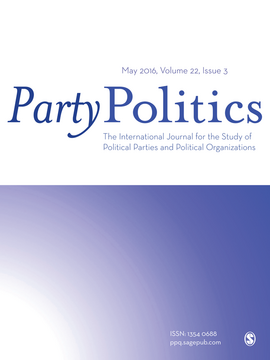 Bicameralism, Intra-Party Bargaining, and the Formation of Party Policy PositionsHanna Bäck, Marc Debus, and Heike KlüverParty Politics, Sep 2014
Bicameralism, Intra-Party Bargaining, and the Formation of Party Policy PositionsHanna Bäck, Marc Debus, and Heike KlüverParty Politics, Sep 2014How do political parties arrive at their policy positions? We conceptualize position formation in federalist countries as an intra-party bargaining process in which subnational parties compete with each other in an attempt to get their own positions into their national party manifesto. Drawing on theories about inter-party bargaining over ministerial portfolios, we hypothesize that the bargaining success of subnational parties depends on their parliamentary strength. We evaluate our hypotheses based on a comprehensive dataset on policy positions of national and subnational parties in Germany from 1990 until 2009. Our results show that German subnational parties that are powerful in the second parliamentary chamber (Bundesrat) are particularly successful in shaping the manifesto of their national party. The findings have important implications for our understanding of intra-party politics and position formation within political parties in Germany more specifically and federalist countries more generally.
@article{back_bicameralism_2014, title = {Bicameralism, {Intra}-{Party} {Bargaining}, and the {Formation} of {Party} {Policy} {Positions}}, author = {Bäck, Hanna and Debus, Marc and Klüver, Heike}, year = {2014}, month = sep, journal = {Party Politics}, volume = {22}, number = {3}, pages = {405--417}, doi = {10.1177/1354068814549343}, url = {https://journals.sagepub.com/doi/abs/10.1177/1354068814549343}, language = {en}, }